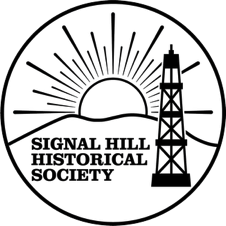Earl Daugherty
is the aviator credited for establishing the first inland airfield in Long Beach
Before it was called the Long Beach Municipal Airport, it was known solely as Daugherty Field. Named in honor of Earl S. Daugherty, a pioneering aviator from Long Beach, it became the first municipal airport to serve Southern California, preceding Los Angeles Airport by more than three years.
Daugherty was born in 1887 in Des Moines, Iowa. He moved to Long Beach in 1902 with his parents. He caught the flying “bug” in 1910 after attending an air meet near Dominguez Hills – keep in mind this was less than a decade after the Wright Brothers first took flight. In 1911 Daugherty became the first person in the city to get his pilot’s license, and only the 87th in the entire country.
Daugherty’s talent and fame grew, not only for being a notable aviator, but also for building his own aircraft. Along with his friend Frank Champion, Daugherty built two planes in the basement of Hotel Virginia and another in the garage at Rancho Los Cerritos. At the time, the only “airport” in the city was the seven-mile strip of beach downtown. Takeoffs and landings were recommended to happen only during low tide.
Champion and Daugherty continued to gain popularity by entertaining crowds on the beach with their flights stunts. Long Beach was then home to Balboa Amusements, one of the largest movie studios in California (located between Sixth Street and Alamitos Avenue). Daugherty had many of his flights filmed and was soon performing acrobatic stunts for the burgeoning movie industry.
Next Daugherty set his sites on opening a school of aviation, but the political climate changed as America entered World War I. Instead he took the position of a flight instructor in the military reserve. His experience during the war opened his eyes to the potential that aviation had to change the community and the world.
WWI ended in 1918, and Daugherty again set his sites on securing Long Beach’s aviation legacy. He opened up the city’s first flight school and non-beach airfield on a sand and sod field near American Avenue (now Long Beach Boulevard) and Bixby Road. He named it Chateau Thierry Flying Field. The “unofficial” airfield was used for recreational flights, housed the flight school and provided a training ground for the military. Additionally, Daugherty teamed up with local police forces to engage in search and rescue missions.
By the early 1920’s, Daugherty was being referred to as the “King of Aviation” in Long Beach, and was looking to expand. He decided to move onto his parents’ land on American Avenue and Willow Street thinking that he could eventually expand the area to become a municipal airport. It was here, in December of 1920, that Amelia Earhart caught the same flying “bug” and decided to become a pilot.
Daugherty’s business continued to grow, as did his personal life, when he married his wife while piloting his own plane over Long Beach in 1923. What other wedding location would the “King of Aviation” choose than in the air over his hometown? In November 1923 the city realized they couldn’t handle the amount of flights with just the beach and Daugherty’s small airfield, so they decided to expand to the land between Cherry and Spring Street. It made Long Beach the first city in California to establish a municipal airport. The new airport, in the location we are familiar with today, was dedicated on December 20, 1924.
On December 8, 1928, Daugherty was flying with two passengers - W.E. Monfort, city editor for the Press-Telegram, and Elmer Starr, manager of the Pacific Engraving Company. As he performed a series of standard stunts, the right wing strut buckled and the wings collapsed. The airplane crashed one mile east of Cherry Avenue and a quarter mile north of Wardlow Avenue. There were no survivors. Daugherty was 42.
To honor Daugherty’s massive contribution to the field of aviation – and to Long Beach – the City officially named its municipal airport Daugherty Field on December 4, 1929. The Daugherty Park Golf course was also dedicated to him in 1930.
Below: Photos of Daugherty and the Long Beach Airfield that used to be in-line with Spring Street. Signal Hill can be seen behind the runways. The Large tank for natural gas that was located on Junipero near Spring Street.

